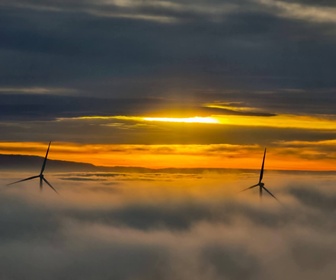The global energy industry is preparing for a period of short-term uncertainty due to rising geopolitical tensions and economic volatility, but retains confidence in the long-term direction of the energy transition, according to DNV’s latest Energy Industry Insights survey. The report identifies political risk as the primary barrier to growth in the year ahead.
There is also a shift in sentiment around the pace of the energy transition: only 55% of respondents believe the transition is accelerating, compared to 72% last year and 79% the year before. The perception of slowing momentum is accompanied by concerns over social equity. Just over half of respondents (51%) believe the energy transition could negatively affect some communities, pointing to risks such as job losses in conventional energy sectors, uneven distribution of benefits, and affordability challenges in less developed regions. Respondents stressed the importance of implementing accessible and affordable clean energy technologies, supported by innovative financing models, to ensure a fair and inclusive transition.
There is a noticeable decline in confidence within the renewables sector, particularly regarding financial performance. Only 50% of respondents expect to meet revenue targets in the next year, while just 43% are optimistic about profitability—down from 75% and 67% respectively three years ago. Economic pressures, political uncertainty, and global conflicts are contributing to cautious investment strategies. Many companies are delaying major commitments or opting for smaller-scale projects, and only 39% of those in the renewables sector anticipate increasing investment in the next 12 months.
Despite short-term concerns, structural trends continue to support long-term confidence. These include the ongoing push for electrification, the urgency of decarbonisation, and steady progress in technology development. A growing focus on digitalisation is also shaping the sector’s evolution. Nearly two-thirds of respondents (64%) believe a whole-systems approach to the energy transition is not possible without fully digitalised infrastructure. Encouragingly, 59% plan to increase spending on digital technologies such as artificial intelligence—a level of commitment that has held steady for four years.
Aging grid infrastructure remains a key barrier to progress. More than three-quarters of power sector professionals identified outdated grids as a significant obstacle to expanding renewable energy, and 96% of respondents called for urgent investment to modernise and strengthen grid systems.









